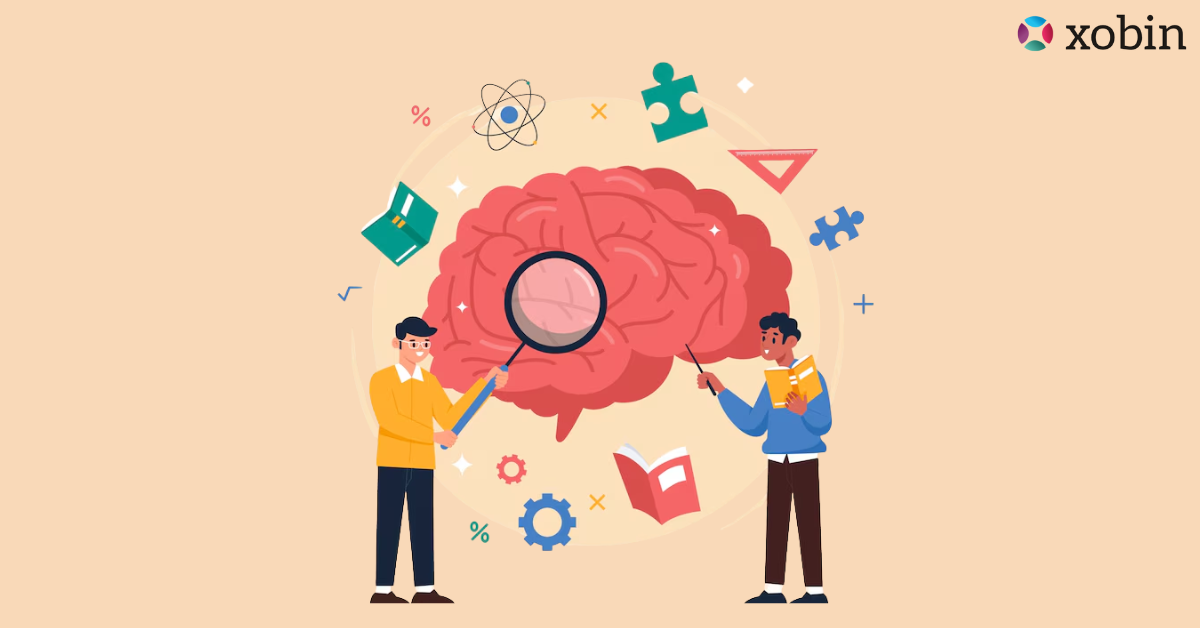As we know, it takes more than just resumes and interviews to find the best talent. That’s where a psychometric evaluation becomes your secret weapon. These tests are designed to uncover a candidate’s true potential and offer deep insights into their personality, aptitude, and behavior. In this comprehensive guide, discover what psychometric test is and how this test can revolutionize your recruitment strategy and help you make smarter, data-driven hiring decisions.
For now, we shall learn to embrace the ambiguity of the future, take advantage of AI to perform our repetitive tasks, and try to leave the office on time.
Table of Contents
What is a Psychometric Test?
A psychometric test is a standardized measurement tool used to evaluate a candidate’s psychological attributes, such as cognitive abilities, personality traits, and behavioral tendencies. These tests are crucial for recruiters who want to go beyond just resumes and interviews, providing objective data to assess potential candidates better. By examining mental abilities like logical reasoning, problem-solving skills, and emotional intelligence, Psychometric assessment tests help recruiters understand how a candidate might perform in a role and interact with others within a team.
In the fast-paced world of recruitment, having a reliable, objective, and scientifically validated method to evaluate candidates can make a big difference. As organizations strive to improve their hiring decisions and reduce turnover, psychometric tests serve as a powerful tool for ensuring candidates align with job requirements and company culture.
Types of Psychometric Test
There are various types of psychometric tests designed to evaluate different aspects of a candidate’s abilities and characteristics. Here are the most common types used in recruitment:
1. Aptitude Tests
Aptitude tests measure a candidate’s ability to perform specific tasks or learn new skills. Common types include:
- Numerical Reasoning Tests: The test evaluates the ability to work with numbers and interpret data.
- Verbal Reasoning Tests: Measure comprehension and reasoning using written information.
- Logical Reasoning Tests: Evaluate problem-solving and pattern recognition skills.
2. Personality Tests
Personality assessments explore behavioral tendencies and interpersonal styles. They help determine how candidates may fit within a team or organizational culture. Examples include:
- The Big Five Personality Traits: Examines openness, conscientiousness, extraversion, agreeableness, and neuroticism.
- Myers-Briggs Type Indicator (MBTI): Classifies people into 16 personality types based on their preferences for judgment and perception.
4. Emotional Intelligence Tests
The Emotional ability test measure a candidate’s ability to understand and manage their own emotions, as well as recognize and influence the emotions of others. Emotional intelligence is a critical factor in roles that require teamwork, customer interaction, and leadership.
5. Cognitive Ability Tests
The cognitive ability test measure mental agility, memory, critical thinking, and the ability to process new information crucial for roles that require constant learning and adaptation.
6. Behavioral Assessment Tests
Behavioral assessments are used to predict how a candidate will behave in different situations based on their responses to hypothetical scenarios. These tests help recruiters understand how candidates will react under stress or pressure.
Reliability and Validity of Psychometric Tests
For psychometric tests to be effective, they must be both reliable and valid.
Reliability
Reliability refers to the consistency of test results over time. A reliable test yields similar outcomes under consistent conditions. Methods to assess reliability include:
- Test-retest reliability: Evaluates consistency over time.
- Inter-rater reliability: Assesses agreement between different evaluators.
- Internal consistency: Measures the degree of correlation between different items on the same test.
Ensuring high reliability involves standardizing test procedures and training administrators.
Validity
Validity determines whether a test measures what it claims to measure. Types of validity include:
- Content validity: Ensures the test covers all aspects of the concept being measured.
- Criterion-related validity: Evaluates how accurately a measure forecasts a result based on another measure.
- Construct validity: Evaluates whether the test truly measures the theoretical construct it’s intended to assess.
- Face validity: the degree to which a test seems to be successful in achieving its defined objectives.
A valid and reliable psychometric test provides meaningful and applicable results, which is crucial for making informed hiring decisions.
Why Use Psychometric Tests in Recruitment?
In today’s competitive job market, these assessments offer recruiters a range of benefits. Here are some key reasons to incorporating psychometric tests into the recruitment process is advantageous:
1. Improved Candidate Selection
Psychometric tests provide objective data that recruiters can use to evaluate candidates. This helps eliminate bias in the hiring process, as decisions are based on measurable attributes rather than subjective opinions. With the data-driven insights provided by these tests, recruiters can make more informed hiring decisions.
2. Better Cultural Fit
By assessing a candidate’s personality and behavior, psychometric tests help recruiters determine whether a candidate will thrive within a company’s culture. This can significantly reduce turnover, as candidates who align well with the culture are more likely to stay long-term.
3. Enhanced Predictive Hiring
A well-designed psychometric test can predict a candidate’s future performance by assessing qualities such as problem-solving skills, adaptability, and emotional intelligence. With these insights, recruiters can hire candidates who are most likely to succeed in the role.
4. Faster Hiring Process
When used in conjunction with traditional interviews and resume screenings, psychometric tests can streamline the recruitment process. Candidates are pre-screened based on objective data, which means that recruiters spend less time reviewing unsuitable applicants.
How Can You Use a Psychometric Test in Your Hiring Process?
1. Select the Right Tests
Choosing the right psychometric test is crucial for effective recruitment. The tests should align with the specific needs of the role and the competencies required. Whether you need to evaluate cognitive abilities, personality traits, or specific job-related skills, ensure that the test measures what matters most.
2. Integrate Testing Into Your Recruitment Workflow
Integrating psychometric tests into your recruitment workflow ensures that they are used consistently and effectively. You can administer tests at different stages of the hiring process, such as initial screening or post-interview evaluations, to gain a deeper understanding of each candidate.
3. Analyze and Interpret Results Carefully
Psychometric test results should be interpreted alongside other assessment tools, such as interviews and reference checks. This holistic approach ensures that you make the best possible decision while mitigating the risks of hiring based on test scores alone.
4. Keep It Legal and Ethical
Ensure that the tests you use are compliant with labor laws and ethical standards. Psychometric tests should not discriminate against any candidate based on race, gender, or other protected characteristics. Be transparent about how the tests are used and ensure candidates are informed throughout the process.
How Can AI Improve the Accuracy of Psychometric Tests?
Artificial Intelligence (AI) has revolutionized many aspects of recruitment, and psychometric tests are no exception. By incorporating AI, recruiters can improve the accuracy and efficiency of the testing process in several ways:
1. Personalized Test Experience
AI-powered psychometric tests can adapt in real time based on a candidate’s answers, providing a more personalized and accurate assessment. For example, if a candidate answers a particular question incorrectly, the test can adjust to present more relevant questions based on the candidate’s skill level.
2. Real-Time Analysis
AI can analyze a candidate’s responses in real-time, identifying patterns and inconsistencies that might otherwise go unnoticed. This can lead to more accurate insights into the candidate’s strengths and weaknesses.
3. Automated Scoring and Feedback
AI can automatically score psychometric tests, providing instant feedback to recruiters. This reduces the time spent on manual evaluations and ensures that the results are consistent and unbiased.
4. Improved Predictive Analytics
With the help of AI, psychometric tests can be linked to historical hiring data, improving the accuracy of predictions about how well candidates will perform in specific roles. This allows recruiters to make more informed decisions based on data-driven insights.
How Do AI-Driven Psychometric Tests Compare to Traditional Methods?
Traditional psychometric tests were typically static and required manual scoring. While these tests could be effective, they often lacked the flexibility and speed that modern recruiters need. Here’s how AI-driven tests compare:
1. Speed and Efficiency
AI-driven tests are much faster than traditional methods. With AI, candidates can take tests online at their convenience, and the results are automatically analyzed and presented in real time. This significantly reduces the time spent waiting for results.
2. Adaptability
Unlike traditional tests, AI-driven psychometric tests can adapt to a candidate’s responses, providing a more personalized experience. This ensures that the test is more accurately measuring the candidate’s abilities.
3. Scalability
AI-powered tests are scalable, making them ideal for handling large volumes of candidates. This is especially useful for organizations with a high turnover rate or large hiring needs, as the AI can quickly assess a large pool of applicants.
4. Enhanced Accuracy
AI’s ability to analyze complex data and identify patterns leads to more accurate results. It can spot inconsistencies and biases that may not be apparent to human recruiters, making the process more objective and reliable.
Addressing Common Concerns of Psychometric Tests
Can Candidates Fake Responses?
While it’s possible for candidates to attempt to present themselves in a favorable light, well-designed psychometric tests include validity scales to detect inconsistent or socially desirable responses.
Are These Tests Culturally Biased?
Reputable psychometric tests are developed and validated across diverse populations to minimize cultural biases.
Do They Replace Interviews?
No, psychometric tests are tools to complement traditional hiring methods, providing additional data to inform decisions.
Enhance Psychometric Testing with Xobin
An advanced psychometric test can address persistent challenges in recruitment, such as unconscious bias, inconsistent evaluations and time-consuming processes.
Xobin offers a complete suite of online Psychometric assessments designed to evaluate 100+ personality and Behavioral traits, Role-specific skills, and Cognitive abilities.
Key features of Xobin’s psychometric testing software include:
- AI-driven scoring: Automatically score and analyze candidate responses in real time.
- Instant, Insightful Reports: Generate in-depth analytics on individual and cohort performance, complete with benchmarks, strengths/weaknesses charts, and predictive fit scores.
- Customizable tests: Select from validated aptitude tests, personality tests, and cognitive ability tests that map directly to your job competencies.
- Adaptive Assessments: Deliver shorter, more precise tests that adapt to each candidate’s ability level, improving measurement accuracy.
- Job-Role Specific Assessments: Instead of generic tests, Xobin helps you assess candidates based on real job competencies.
- Seamless integration: Easily integrate with your existing ATS (Applicant Tracking System) to streamline the hiring process.
- Scalable for Volume Hiring: Assess a large volume of candidates quickly and efficiently, making it easier to handle high-demand hiring situations.
- Anti-Cheating Tools – With advanced AI-based web proctoring and eye-gazer monitoring features, Xobin ensures test integrity.
If you’re looking to bring more objectivity, accuracy, and insight into your recruitment process, incorporating scientifically-backed psychometric tests is a smart move. Discover how data-driven assessments can help you identify the right talent, reduce bias, and improve employee retention.
Start exploring the benefits of modern psychometric assessments and Book a personalized demo today, as your next great hire might just be one assessment away!






